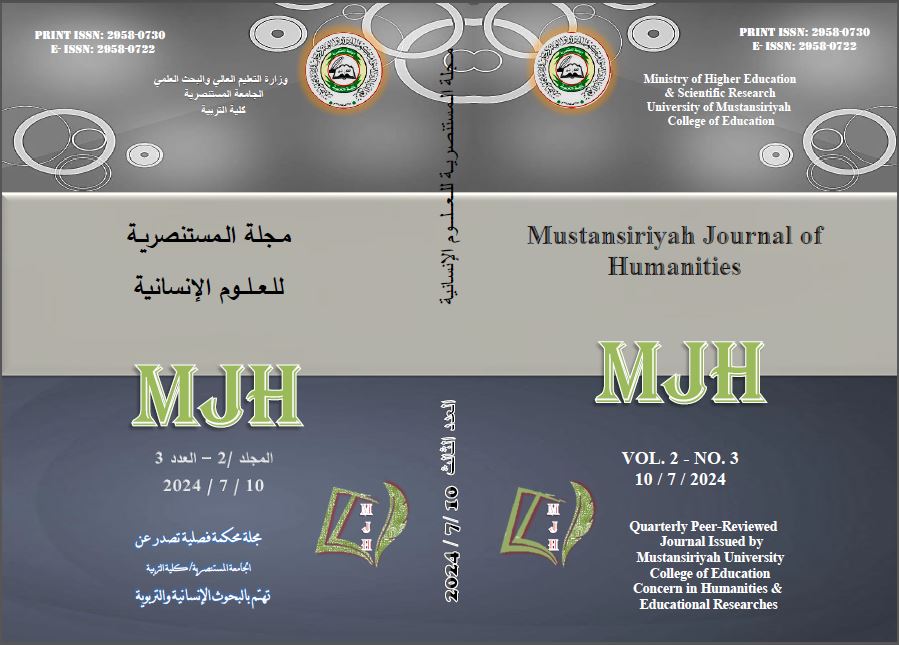The effect of Robinson Strategy on the achievement of second grade femaIe Students in the Social studies subject
DOI:
https://doi.org/10.47831/mjh.v2i3.373Keywords:
Robinsons ,strategy,achievement,sociaI,studiesAbstract
The present study seeks to evaluate the influence of the Robinson strategy on the academic performance of female students in the second grade of middle school. The investigator opts for a quasi-experimental design with partial control, encompassing both pre-test and post-test assessments. The study population comprises 61 students, segmented into two cohorts: 30 individuals in the experimental group and 31 in the control group. Both sets are equated across all variables. A pre-test evaluation of academic performance is executed, and the methodologies are scrutinized by a panel of specialists in pedagogy, appraisal, and validation to ensure dependability and authenticity. Following the conclusion of the intervention period, a post-test is administered to both factions of students. Examination of the data using statistical techniques uncovers notable distinctions between the control and experimental clusters in the post-test, demonstrating that the Robinson strategy exerts a more substantial influence on academic achievements. Drawing from these outcomes, the researcher puts forth various recommendations and insights.





